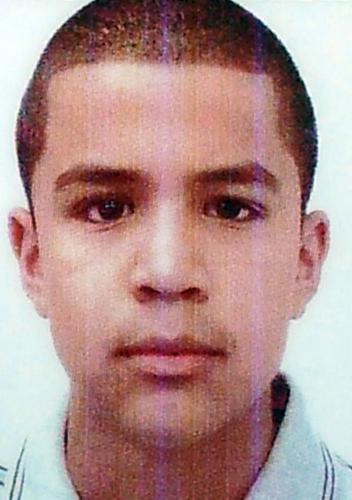Whether Border Patrol agent Lonnie Swartz shot and killed a Mexican teen in 2012 because he was fed up with rocks being thrown across the border or acting according to his training in a dangerous situation is at the center of a retrial in Tucson’s federal court.
Swartz is being tried on a charge of voluntary manslaughter in the cross-border fatal shooting of Jose Antonio Elena Rodríguez, 16, after a jury in April found him not guilty of second-degree murder but couldn’t agree on the lesser charge.
“On Oct. 10, 2012, the defendant signed the death warrant for Jose Antonio Elena Rodríguez,” Assistant U.S. Attorney Wallace Kleindienst told the new jury of 10 women and six men, including four alternates, in opening statements Wednesday.
Swartz fired 16 shots in 34 seconds, 10 of which hit Elena Rodriguez in the back and head.
“In some cases, the use of deadly force is justified,” Kleindienst told the jury, “but this is not one of them.”
In the year before the incident, Swartz used some form of less-than-lethal force in six of the seven “rocking” incidents he had been an object of, Kleindienst said.
“He was fed up with having rocks thrown over the fence and decided to do something about it. ... Sixteen shots, 10 hits, 34 seconds, that’s what this case is about.”
The night of the shooting, Border Patrol agents and Nogales police officers were responding to a call of two people seen jumping the fence with two bundles of marijuana.
As the two tried to flee back to Mexico, others starting pelting the agents and officers with rocks from the Mexican side.
The group, according to the prosecution and defense, included Elena Rodríguez.
Border Patrol surveillance footage shows Swartz approaching the fence with his weapon drawn and firing three shots through the 4-inch gaps of the 22-foot-tall fence.
He then moves 45 feet west and fires 10 more shots, reloads and fires three more times.
“Fed up?” defense attorney Sean Chapman countered in his opening statement. “After the shooting, he walked to a telephone pole threw up and cried. He felt horrible, but did what he had to do.”
Swartz has said he heard a fellow agent say he had been hit and a loud thud from a rock hitting a Nogales police dog.
Chapman described the border as a dangerous place controlled by cartels that can get desperate, violent and unpredictable when protecting valuable contraband.
A pound of marijuana had a street value of about $800 in 2012 and that night agents seized 22 pounds worth about $19,000.
The Border Patrol is a paramilitary organization charged with enforcing immigration and narcotics laws, he told the jury. “They are not like us. They have a dangerous job.”
“The prosecution say his (Elena Rodríguez’s) only crime was throwing rocks,” Champan said.
“No, he was trying to injure agents. No, he was trying to help drug smugglers. No, he was trying to help the drug cartel.”
Agents are trained from Day 1 that rocks can be a deadly weapon, Chapman said.
They can use deadly force if they or a third party are in danger of serious bodily injury or death.
But they are trained it should be the last resort, Kleindienst told the jury. “When he kills his victim José Elena, he threw out his training, he disregarded what he was taught because he was fed up.”
None of the other officers and agents at the scene fired their weapons; instead, they retreated to a safe location, Kleindienst said.
“He doesn’t go to a safe location where rocks or debris can’t hurt him,” he said. “He walks in a deliberate, intentional manner up to the fence.”
“He has the high ground,” the prosecutor said, likening it to “shooting a fish in a barrel.”
Chapman countered Border Patrol policy doesn’t require agents to take cover, run away or be seriously injured by rocks before responding with deadly force.
Both sides tried to address some of the bigger questions that came out of the first trial, such as the size of the rocks.
Most weighed less than half a pound, Kleindienst told the jury.
A witness who lives on the U.S. side of the border told the FBI she knew the victim and had seen him as part of the drug smuggling operation earlier that day. She might deny she said it, Chapman said, which is what she did during the first trial.
She’s afraid, Chapman told the jurors. There are drug smugglers who use the area where she lives, he said.
“We have to put ourselves in his (Swartz’s) shoes,” Chapman told the jury. Whether it’s a reasonable decision has to be viewed “from the individual agent, on trial in this case, and his perception of threat.” Different agents can assess threat differently and it doesn’t mean one is wrong.
“It’s tragic that he (Elena Rodríguez) died,” Chapman said, “but he died because he made a decision to engage in a smuggling operation and tried to assault federal agents.”
The trial is expected to last up to four weeks in the court of U.S. District Judge Raner Collins.
Scroll down to see the timeline or click the arrows to move along







